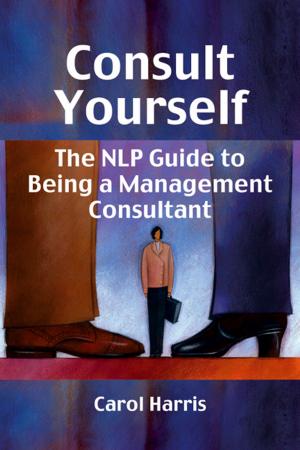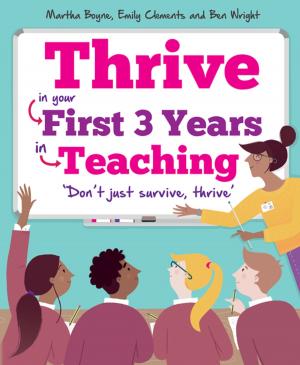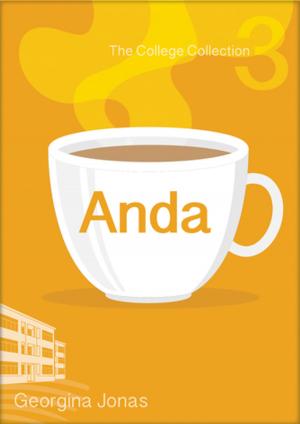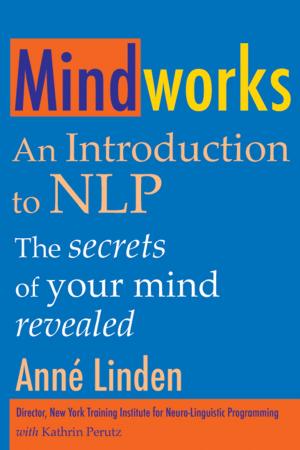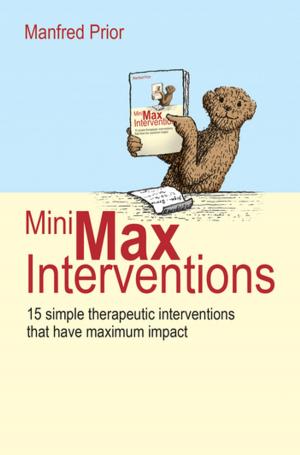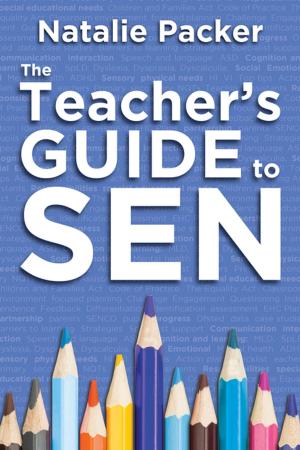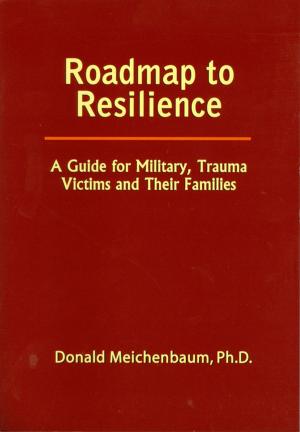Forty Pence Each or Two for a Pound
Making maths memorable, accessible and relevant
Nonfiction, Reference & Language, Education & Teaching, Teaching, Teaching Methods| Author: | Danielle Bartram | ISBN: | 9781785832949 |
| Publisher: | Crown House Publishing | Publication: | November 23, 2017 |
| Imprint: | Crown House Publishing | Language: | English |
| Author: | Danielle Bartram |
| ISBN: | 9781785832949 |
| Publisher: | Crown House Publishing |
| Publication: | November 23, 2017 |
| Imprint: | Crown House Publishing |
| Language: | English |
In Forty Pence Each or Two for a Pound: Making Maths Memorable, Accessible and Relevant, Danielle Bartram shares a wealth of practical resources and ideas to help teachers develop a whole-school commitment to, and enthusiasm for, improving numeracy. How many times have you heard someone say they ‘can’t do maths’? This attitude and acceptance of it appears to be endemic, but being bad at maths – or excusing innumeracy as maths-phobia – can no longer be tolerated. Danielle Bartram, of Miss B’s Resources fame, has made it her mission to remedy this issue and believes that learners should have a basic concept of number and problem solving in order to stop them being ripped off by companies when purchasing items, insurance or moving energy suppliers later on in life. For this reason, she has specifically designed Forty Pence Each or Two for a Pound to give the teaching and learning of numeracy a firm foundation in everyday contextual settings so that students can transfer the logical and functioning skills inherent in mathematical understanding to real-world contexts. With the new Ofsted criteria focus on numeracy, all teachers will want to develop their maths teaching practice. Forty Pence Each or Two for a Pound contains plenty of ideas to help teachers of all subject specialisms to do just that, and tackles students’ maths-phobia head on by providing an invaluable collection of 31 ready-to-use activities and resources to improve their enthusiasm for, and confidence in, the applied use of maths. Danielle has achieved this by shifting away from a prescribed list of maths-teaching techniques and instead presents a treasure trove of exciting, lesson-ready ideas held together by six numeracy links – number, functional skills, graphs and statistics, problem solving, shapes and measures, and formulae and equations – that can be embedded across the full curriculum. The 31 resources are tagged with their relevant numeracy links to indicate the mathematical territory covered (e.g. graphs and statistics), and are also divided into six categories – literacy, exploration, engagement, classroom management, marking and reflection, and organisation and presentation – for ease of identification while flicking through the book. Danielle complements each activity with useful mathematical pointers, such as the language to be used and the numerical concepts that students often struggle with or have misconceptions about, and has made all of the resources available as PDF downloads from her Miss B’s Resources website via a specific link provided in the book. Beyond the more practical provision of strategies and resources, Forty Pence Each or Two for a Pound also offers expert guidance on the shaping of numeracy coordination across the school and presents example audit grids to serve as an outline of how students’ progress with each numeracy link can be monitored. Suitable for numeracy coordinators and teachers of all subjects, in both primary and secondary settings, who want to embed into their lessons the numeracy skills that their students will need in everyday life. Contents include: Chapter 1 – What is Numeracy?; Chapter 2 – Numeracy4All Chain; Chapter 3 – Breaking Up the Journey; Chapter 4 – Numeracy Links; Chapter 5 – Subject Knowledge; Chapter 6 – The 31 Prime Resources and Ideas; Chapter 7 – Enthusiasm.
In Forty Pence Each or Two for a Pound: Making Maths Memorable, Accessible and Relevant, Danielle Bartram shares a wealth of practical resources and ideas to help teachers develop a whole-school commitment to, and enthusiasm for, improving numeracy. How many times have you heard someone say they ‘can’t do maths’? This attitude and acceptance of it appears to be endemic, but being bad at maths – or excusing innumeracy as maths-phobia – can no longer be tolerated. Danielle Bartram, of Miss B’s Resources fame, has made it her mission to remedy this issue and believes that learners should have a basic concept of number and problem solving in order to stop them being ripped off by companies when purchasing items, insurance or moving energy suppliers later on in life. For this reason, she has specifically designed Forty Pence Each or Two for a Pound to give the teaching and learning of numeracy a firm foundation in everyday contextual settings so that students can transfer the logical and functioning skills inherent in mathematical understanding to real-world contexts. With the new Ofsted criteria focus on numeracy, all teachers will want to develop their maths teaching practice. Forty Pence Each or Two for a Pound contains plenty of ideas to help teachers of all subject specialisms to do just that, and tackles students’ maths-phobia head on by providing an invaluable collection of 31 ready-to-use activities and resources to improve their enthusiasm for, and confidence in, the applied use of maths. Danielle has achieved this by shifting away from a prescribed list of maths-teaching techniques and instead presents a treasure trove of exciting, lesson-ready ideas held together by six numeracy links – number, functional skills, graphs and statistics, problem solving, shapes and measures, and formulae and equations – that can be embedded across the full curriculum. The 31 resources are tagged with their relevant numeracy links to indicate the mathematical territory covered (e.g. graphs and statistics), and are also divided into six categories – literacy, exploration, engagement, classroom management, marking and reflection, and organisation and presentation – for ease of identification while flicking through the book. Danielle complements each activity with useful mathematical pointers, such as the language to be used and the numerical concepts that students often struggle with or have misconceptions about, and has made all of the resources available as PDF downloads from her Miss B’s Resources website via a specific link provided in the book. Beyond the more practical provision of strategies and resources, Forty Pence Each or Two for a Pound also offers expert guidance on the shaping of numeracy coordination across the school and presents example audit grids to serve as an outline of how students’ progress with each numeracy link can be monitored. Suitable for numeracy coordinators and teachers of all subjects, in both primary and secondary settings, who want to embed into their lessons the numeracy skills that their students will need in everyday life. Contents include: Chapter 1 – What is Numeracy?; Chapter 2 – Numeracy4All Chain; Chapter 3 – Breaking Up the Journey; Chapter 4 – Numeracy Links; Chapter 5 – Subject Knowledge; Chapter 6 – The 31 Prime Resources and Ideas; Chapter 7 – Enthusiasm.

